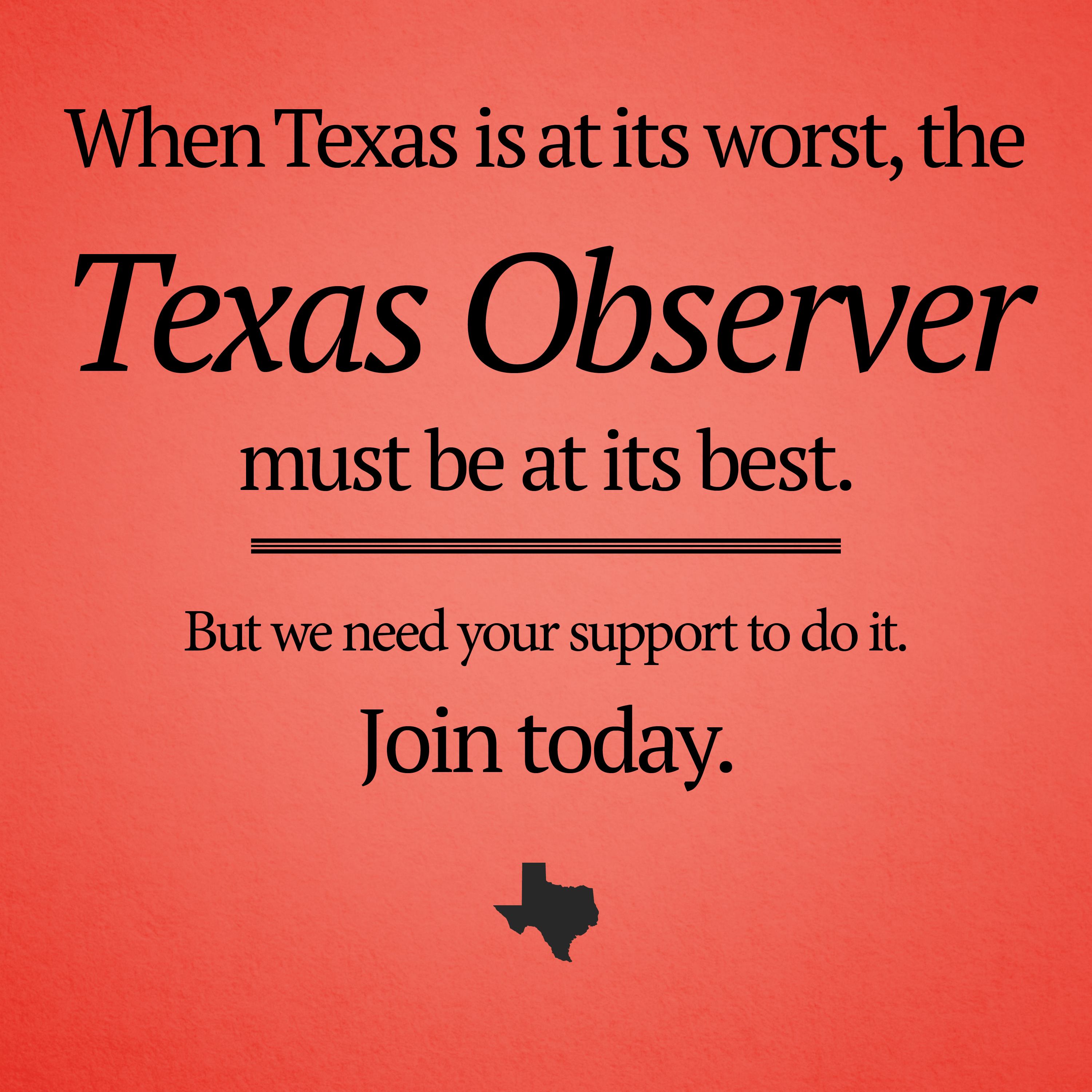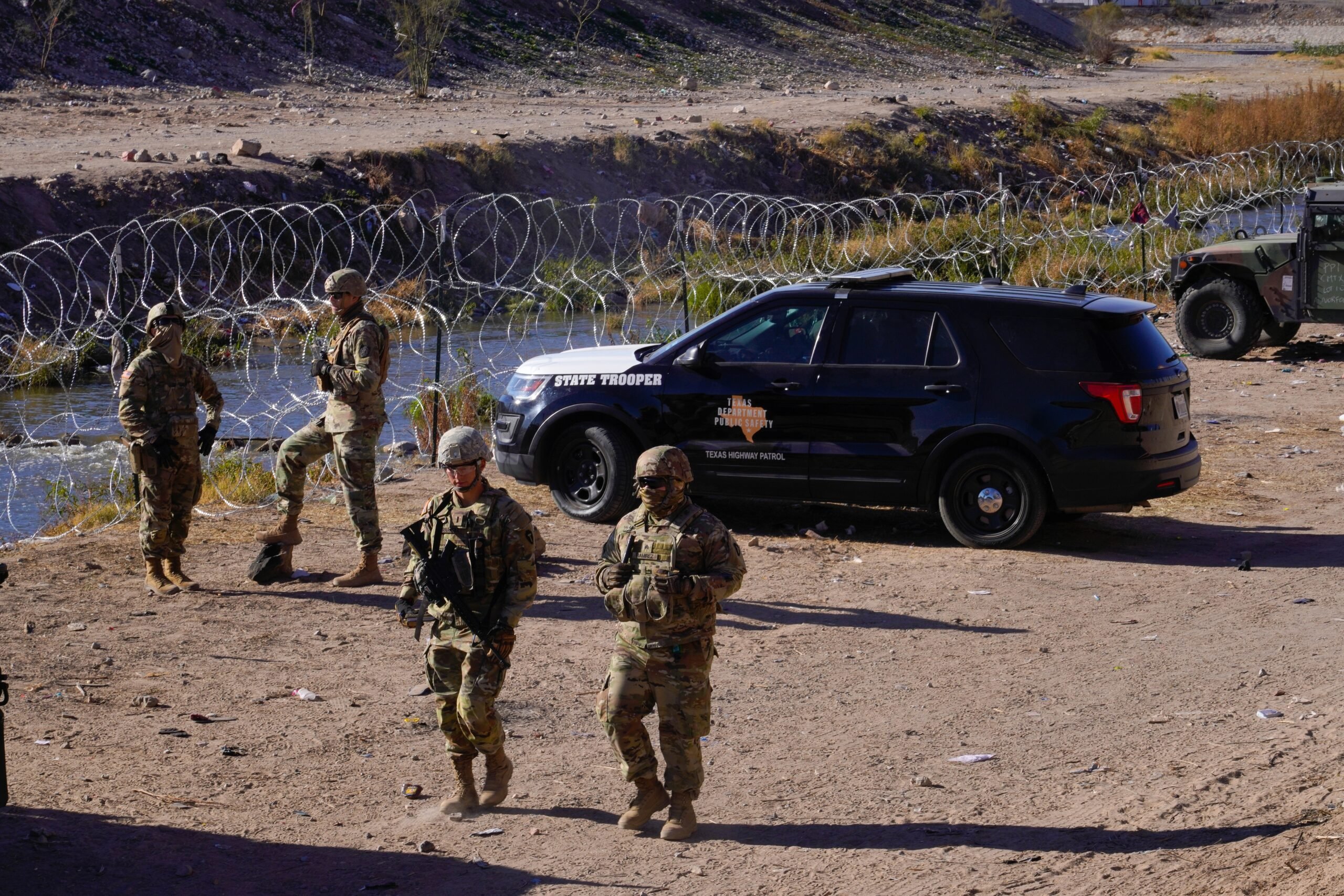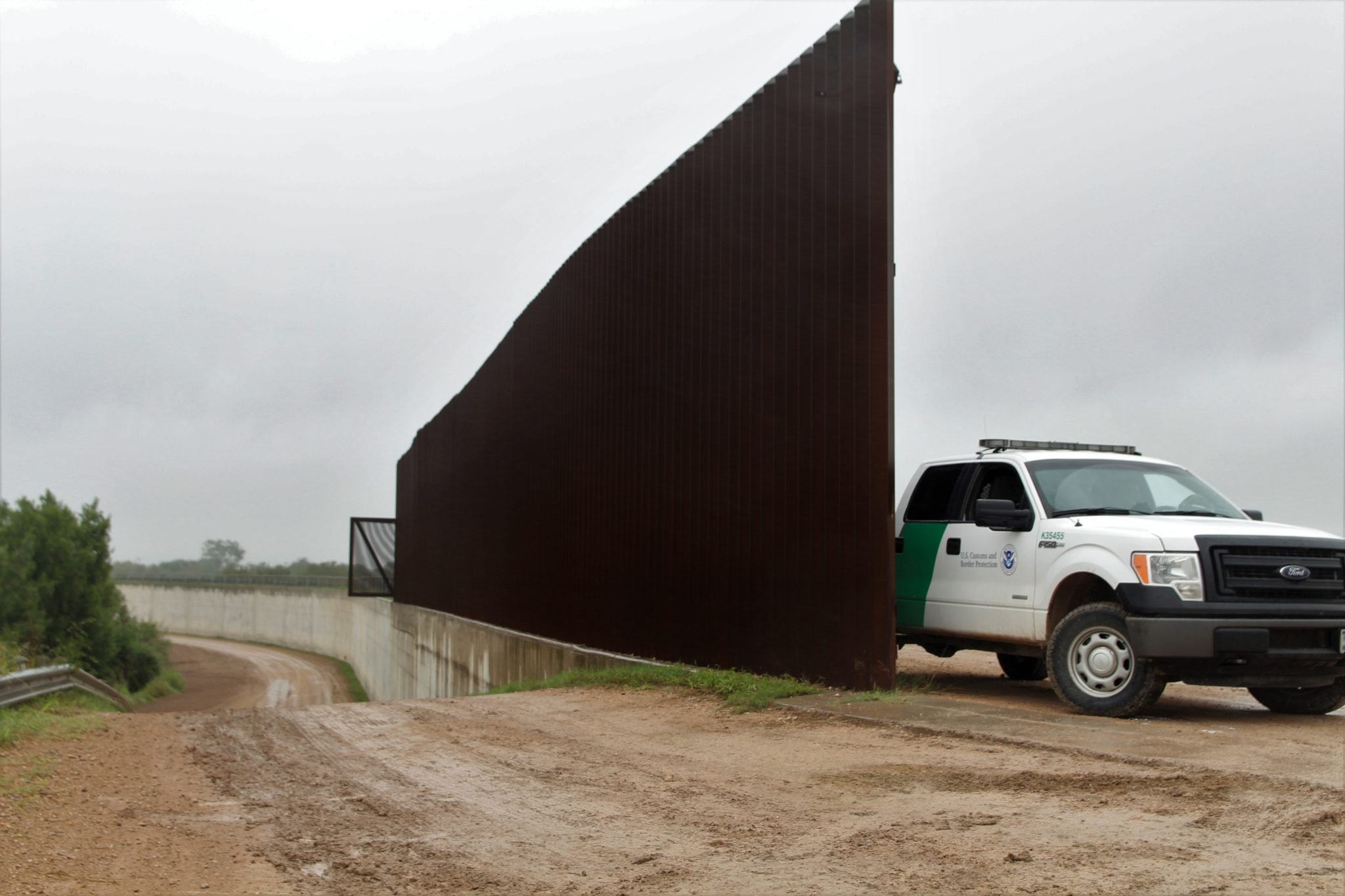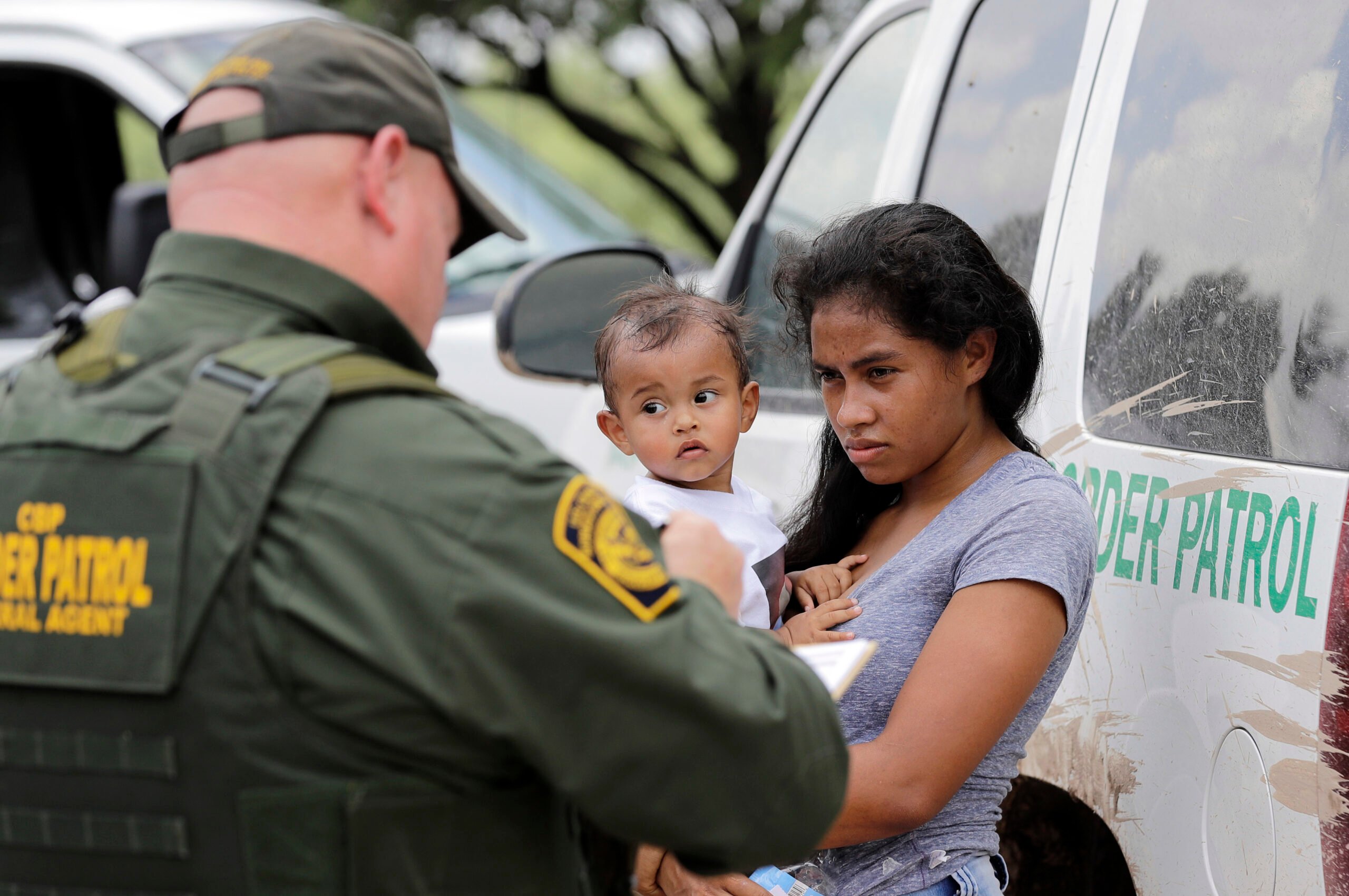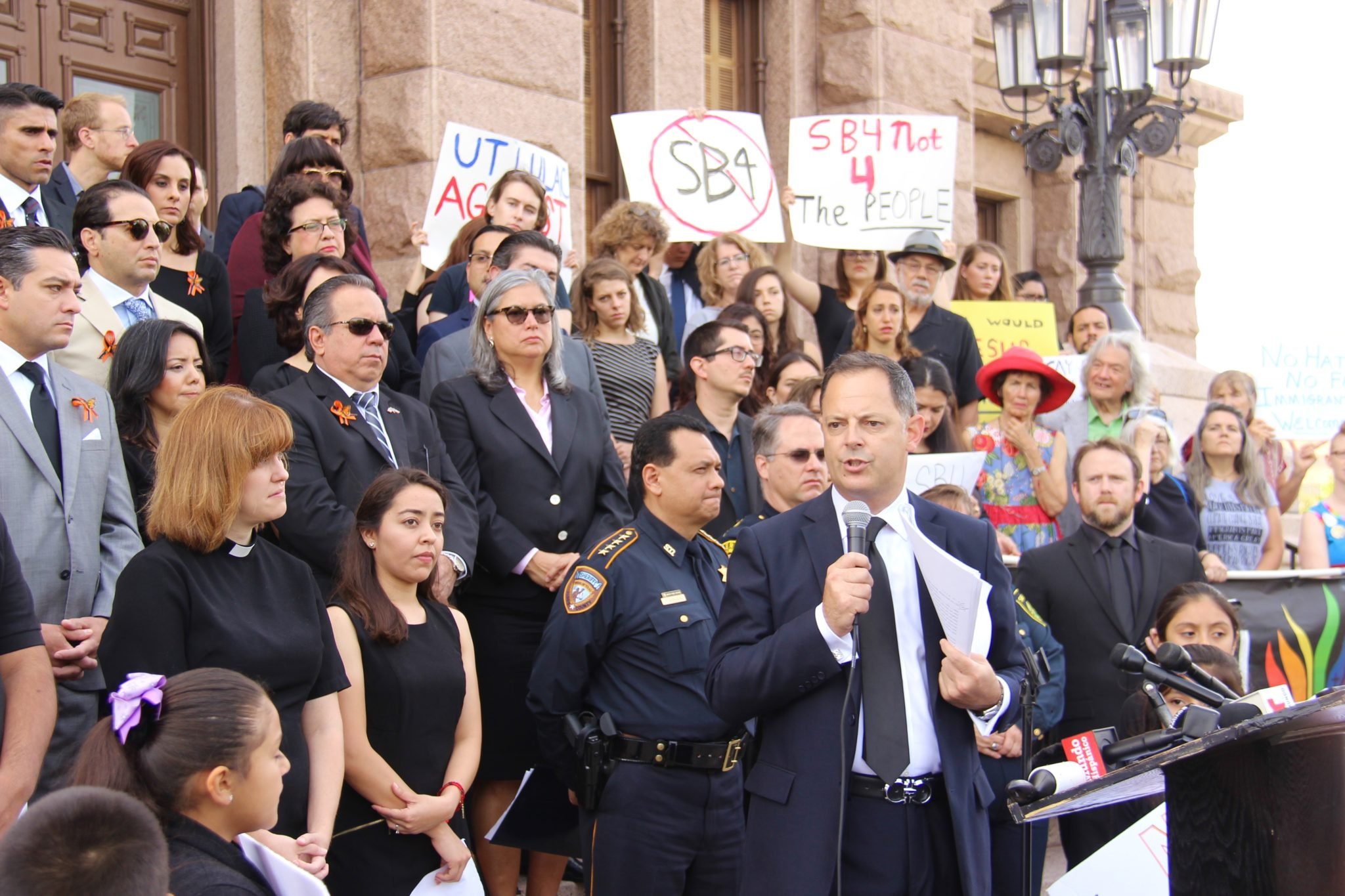
Abortion-Rights Advocates are Really Worried About Texas’ ‘Sanctuary Cities’ Ban
SB 4 will scare more immigrants away from accessing reproductive health care, critics say.
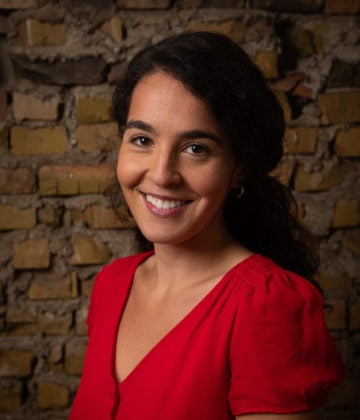

Growing up in the Rio Grande Valley, Nancy Cárdenas Peña often worried that her undocumented parents wouldn’t make it home. She feared being pulled over by Border Patrol. She even feared going to the doctor.
“Whenever it came to reproductive health services of any kind, we had to get really creative. Sometimes that meant bearing pains a lot longer than we should have, but that was our life,” said Cárdenas Peña, who is now state director for policy and advocacy at the National Latina Institute for Reproductive Health.
Cárdenas Peña and other reproductive rights advocates gathered at the Texas Capitol Wednesday to oppose the state’s “sanctuary cities” ban, legislation they say would stoke fear and lead to more immigrants forgoing health care — particularly abortion services. Immigrant communities already face barriers to care and can be apprehensive of law enforcement. The “sanctuary cities” bill would ratchet up the fear and make individuals even less likely to access services, they say, because it would grow the number of officials who might ask for their immigration status by allowing police officers to essentially act as Immigration and Customs Enforcement (ICE) officials.
“Anything that makes it harder for a person to use the health care system makes it 20 million times harder to access abortions.”
Senate Bill 4, which the House tentatively approved early Thursday morning after 16 hours of debate and will take up for final passage today, would require local law enforcement agencies to comply with federal immigration authorities — a measure immigrant rights advocates say would lead to more deportations.
“Anything that makes it harder for a person to use the health care system makes it 20 million times harder to access abortions, because of current state laws and because it’s so stigmatized in Texas,” said Nan Little Kirkpatrick, executive director of the Texas Equal Access Fund, which helps low-income women afford abortions. “If you add to that the burden of being undocumented and afraid, it becomes pretty much impossible to access abortion care.”
Kirkpatrick said the climate of fear is already having a chilling effect on undocumented women.

“I’ve been getting a lot of calls from folks who are scared about ICE being en route to health care clinics,” said Cárdenas Peña. “Since police officers would feel entitled to ask for patients’ immigration status under SB 4, the big worry is that they will act as immigration agents as well.”
Deportation fears have grown since President Donald Trump’s election, advocates say, particularly along the U.S.-Mexico border, where the largely immigrant community is saturated with Border Patrol, ICE agents and state police ordered to patrol border communities.
“Since the new administration started, we’ve seen more and more women missing health care appointments because they’re afraid,” said Paula Saldaña, the field coordinator in the lower Rio Grande Valley for the Texas Latina Advocacy Network, an affiliate of the National Latina Institute for Reproductive Health. “Life for families pauses, they don’t leave their homes. They miss appointments; some have voiced concern about taking their children to the bus stop or going grocery shopping.”
The Lilith Fund, another organization that provides financial assistance to women seeking an abortion, has fielded concerns from clients in the Valley and El Paso recently about navigating checkpoints to reach the closest abortion facility, said Amanda Williams, the group’s executive director.
There is currently one clinic in the Rio Grande Valley, a Whole Woman’s Health Clinic in McAllen, which performs abortions up to about 18 weeks after the last menstrual period (LMP). Women who are further along in their pregnancy must pass through Border Patrol checkpoints to get to the next closest clinic in San Antonio, where Alamo Reproductive Services offers abortions up to 22 weeks LMP — the legal limit according to state law.
The journey and time off work is already a burden to many women in the Valley, but the added fear of passing a checkpoint or traveling long distances where they might be stopped by ICE, Border Patrol agents or local cops could make that trip impossible, Williams said.
“SB 4 sends the message that no place is safe,” said Kirkpatrick. “It would make it harder to access abortions because it gives the impression that everywhere immigrants turn, they are under the threat of deportation.”
